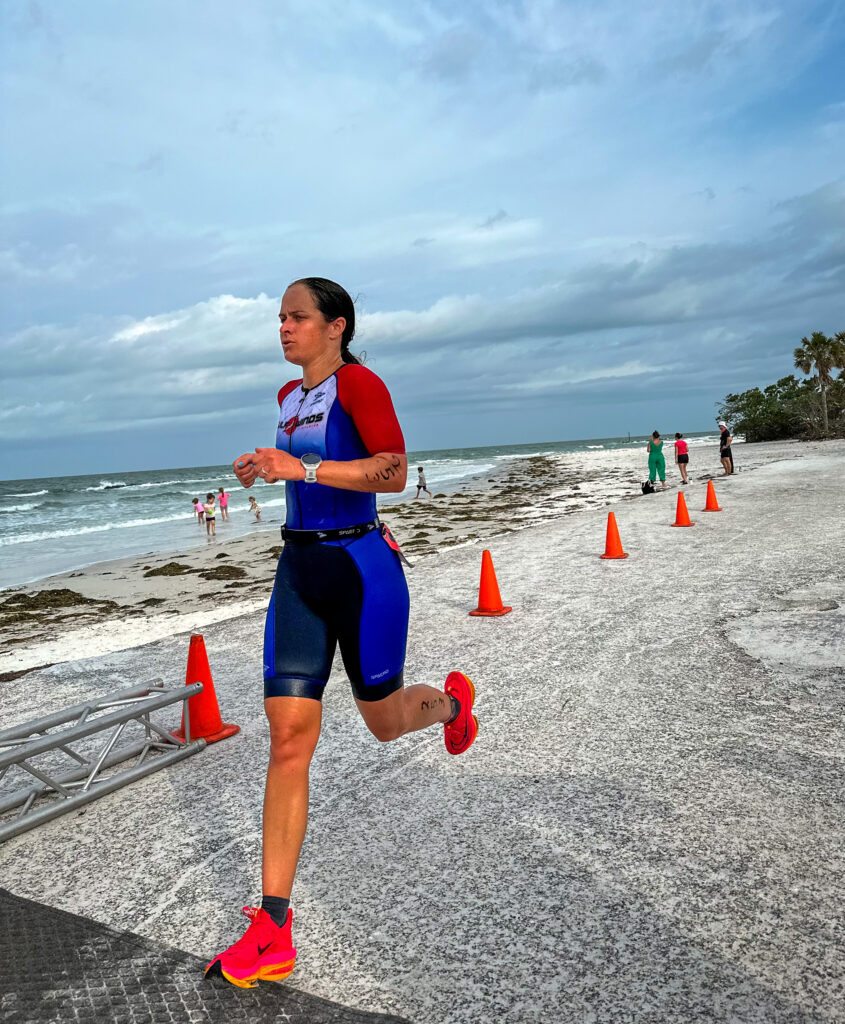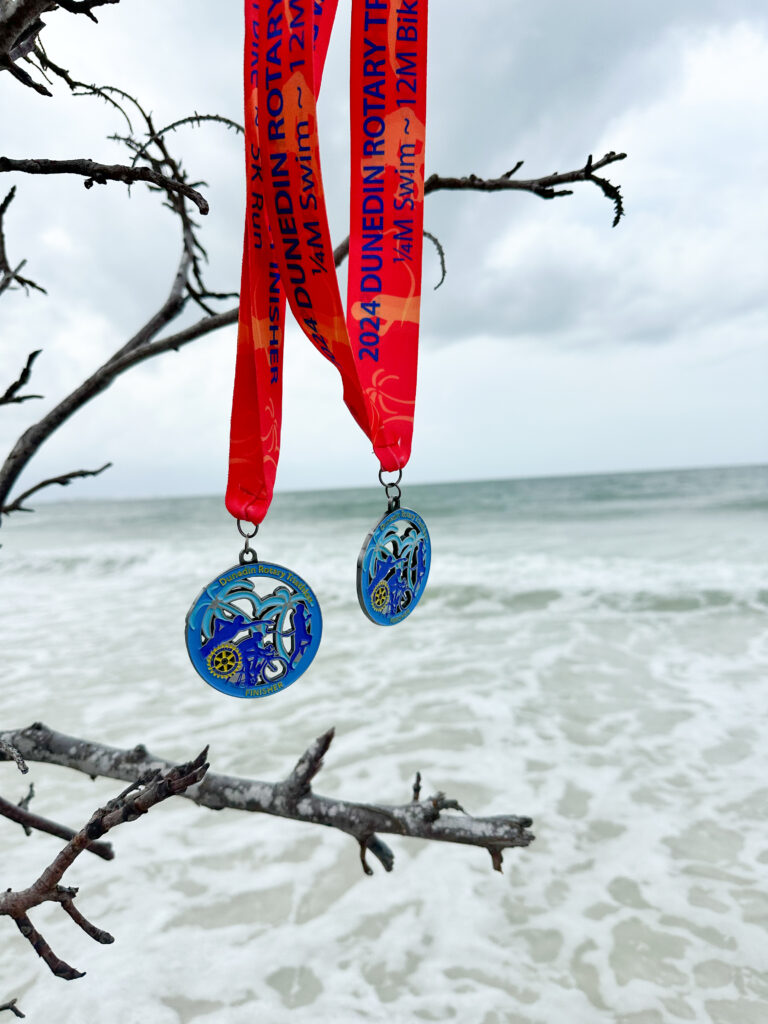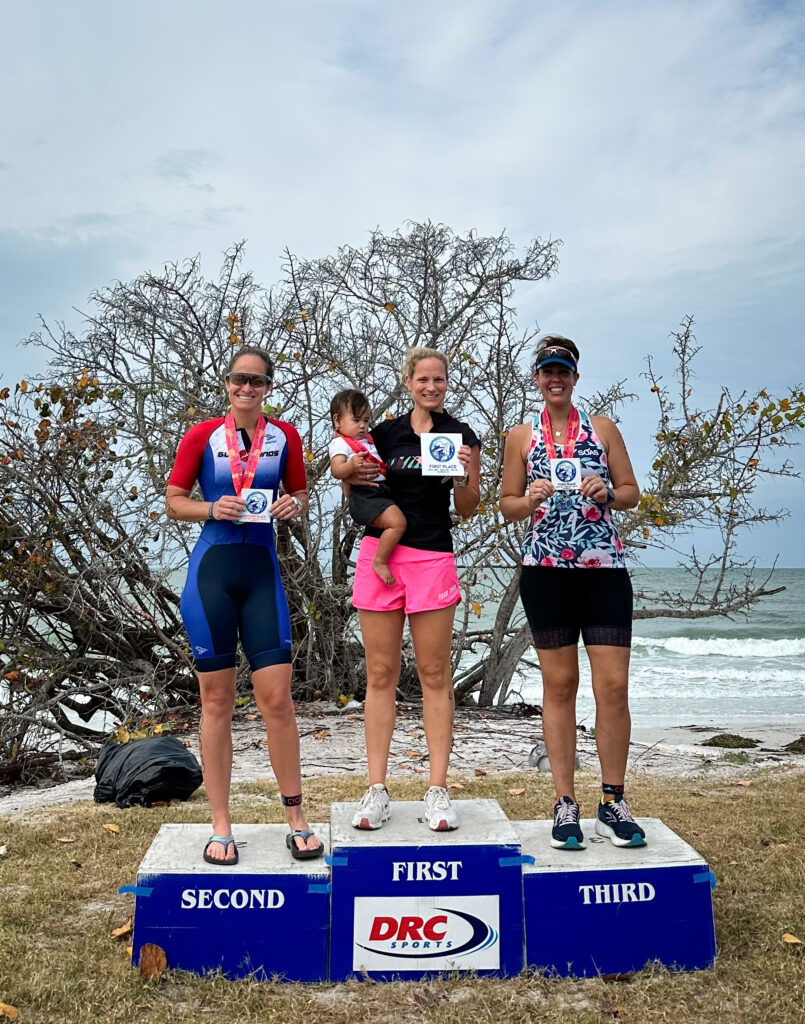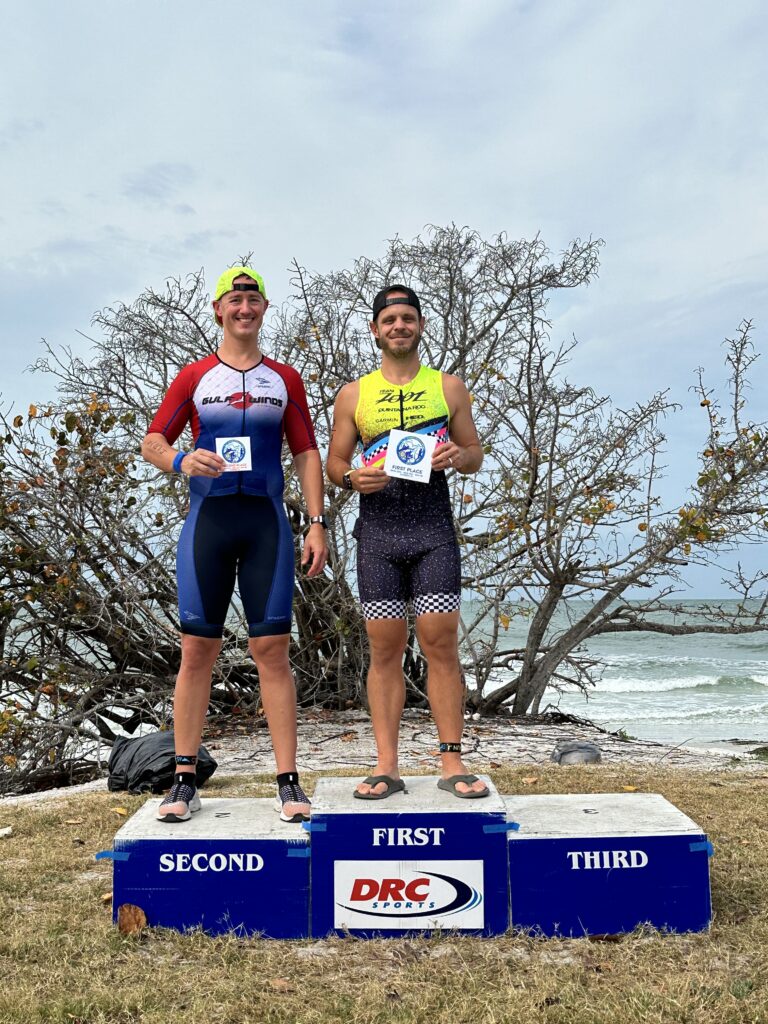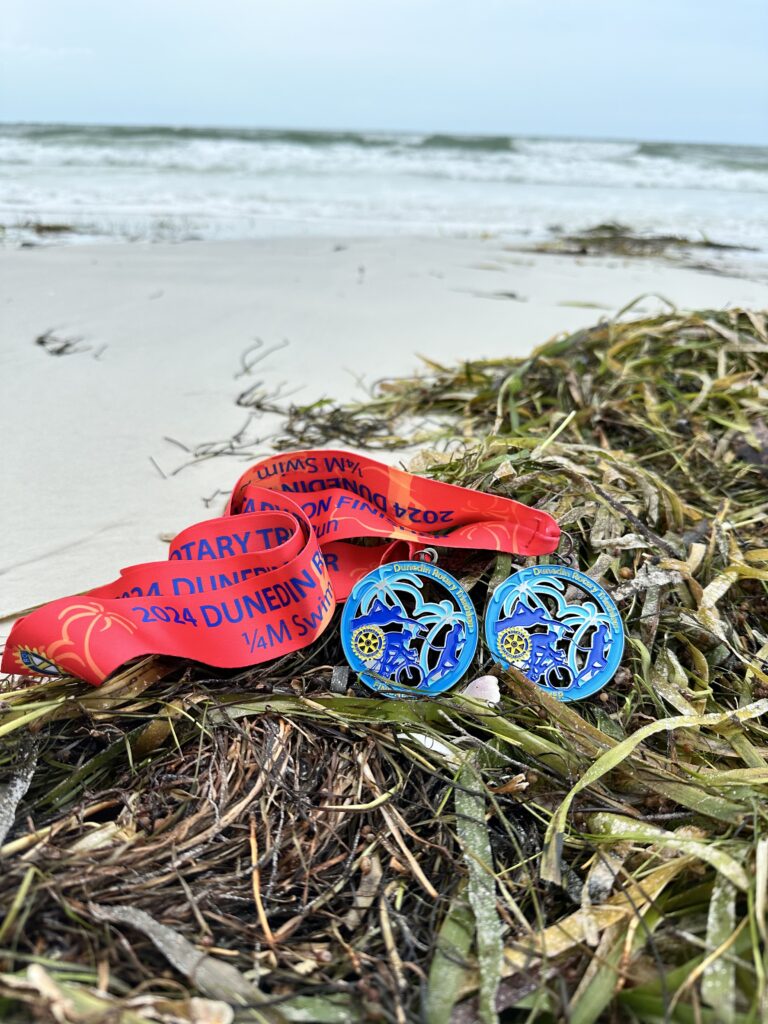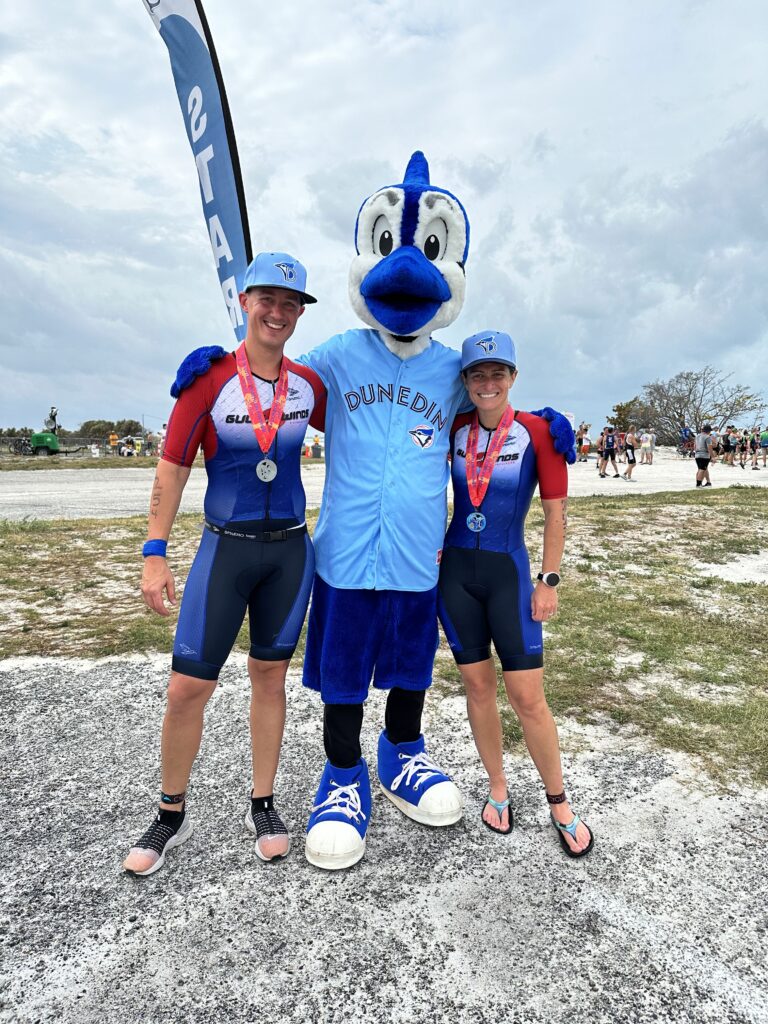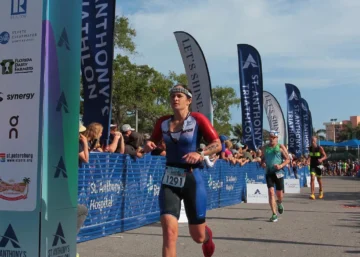
Do you know the most common question triathletes ask pre-race?
- What if the swim gets cancelled?
- What if it’s not wetsuit legal?
- What if it’s hot and humid?
What do all of these questions have in common?
They’re based on what-if thinking.
Stick around any Ironman or 70.3 Facebook group long enough, and you’ll see variations of this question pop up 1,000,000 times.
What-if questions aren’t inherently bad. They’re a normal part of the decision-making process. They can help us weigh pros and cons and even motivate us to make better choices.
But when the what-ifs become overwhelming, that’s a symptom of a bigger problem.
This is something I struggle with myself, so I know exactly where you’re coming from.
“Questioning every possible event, outcome, or result can only lead to us doubting in our abilities and in others.”- Lodestone Center
When I start to go down the rabbit hole of what-if thinking (whether it’s related to triathlon, work, or relationships) my husband tells me the story of his third grade teacher. He hated what-if thinking and thought it was ridiculous, so he came up with an example for his students.
He’d say, “What if a bobcat eats you when you go outside?”
Strong imagery for a third-grader, but he had a point.
What-if thinking often leads to catastrophizing, or exaggerating the worst possible outcome, even when it’s unlikely.
I just wrote an article for Triathlete Magazine about Taper Week Personalities. It was part-humor and part-informative as we outlined 7 taper week personalities and had a coach provide guidance about how to help with specific issues. One personality was The Worrywort.
This is the athlete who feels all the feels during taper week and likes to have everything under control. What-if questions are their favorite…
“What if the race isn’t wetsuit legal?”
“What if I get a flat tire?”
“What if a shark wearing a jetpack launches out of a volcano and crashes into the bike course?”
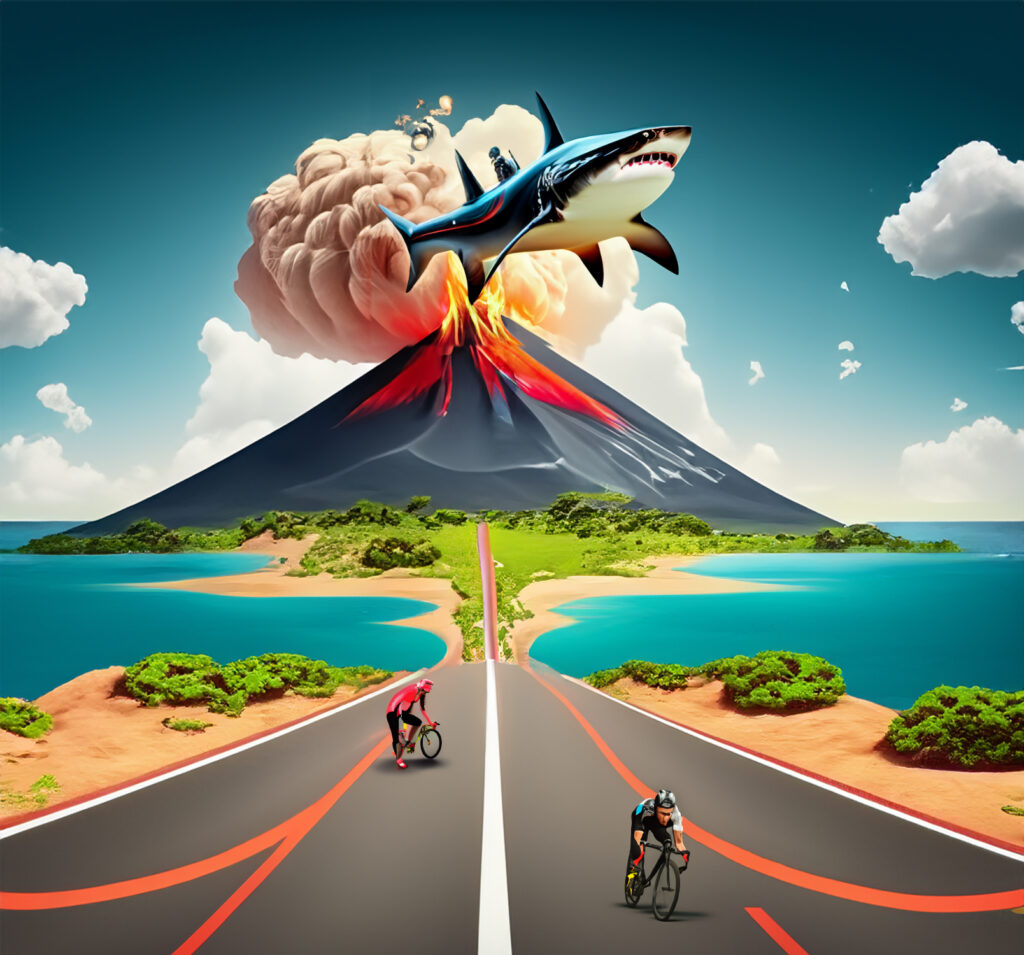
It’s funny because it’s true.
The problem with what-if thinking is that it stems from a place of anxiety about something we don’t have any control over. Because we don’t have the answer to the what-if question, we make up scenarios to predict what might happen in the future. But that train of thought often leads to more questions, which quickly turns into a spiraling cycle of anxiety.
I don’t claim to be an armchair psychologist, but here’s one method to combat what-if thinking.
First, recognize that you’re using what-if thinking and try to identify what anxiety might be the cause. For example, if it’s “What if the swim isn’t wetsuit legal?” you might be concerned about completing the distance without a wetsuit. Maybe you doubt your ability as a swimmer or have anxiety about swimming in open water.
Once you determine what the root cause is, you can shift from predicting the future to deciding how you might cope if the situation you’re worried about actually happens. This way, you flip the script from what-if thinking to if-then thinking.
IF this happens, THEN I will.
Sometimes, it’s helpful to think about the worst possible outcome and decide if you can handle it. The answer is always going to be yes, you can. Even if you completely freak out in the swim and have to doggy paddle from kayak to kayak to get to the end, you will.
If you can’t make it to the finish and have to be pulled from the water, is it the end of the world? No, it sucks and it’s disappointing, but you will be ok and you can always try again.
Knowing you can handle the worst possible outcome is empowering.
3 Steps to Combat What-If Thinking
- Identify what’s causing anxiety.
- Create a plan- IF this happens, THEN I will.
- Recognize- It hasn’t happened yet, so I will not worry about it.
This helps pull you back to the present moment, instead of focusing on the future.
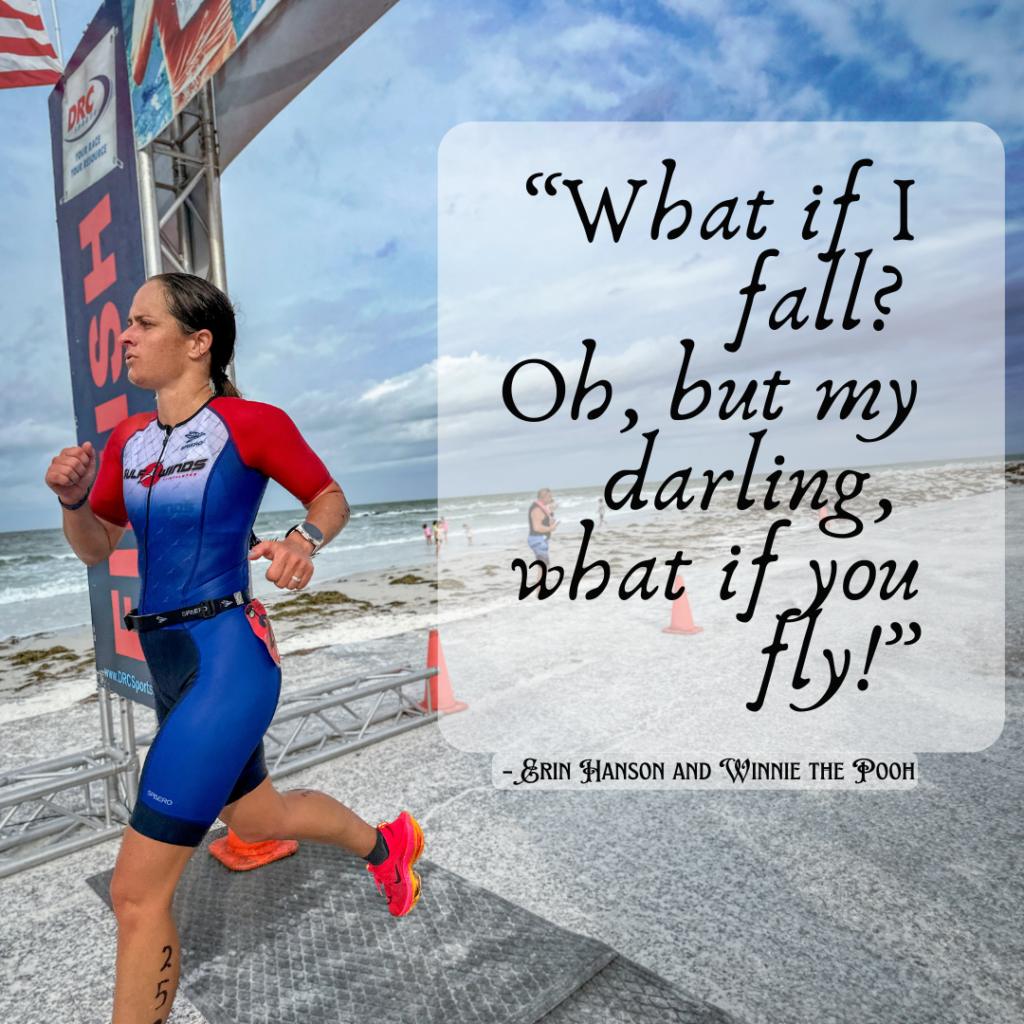
But why is it that we always focus on the worst possible outcome? Why not focus on the best case scenario? It’s equally as likely.
Maybe it’s because we focus on fears over facts. It’s normal to have fears, anxiety, and phobias. That’s part of being human. But we can’t let our fear, specifically fear of the unknown, lead to paralysis.
Focus on facts, not fears.
Rather than worry about a potential outcome, do something about it.
If you’re afraid of getting a flat tire on the bike, make sure you have a fully stocked flat kit. Purposefully deflate your tire and change it to practice. Run through the steps you will take if you get a flat so you become more confident that you can handle that situation if it does happen.
If you’re worried about swimming without a wetsuit, then go swim without a wetsuit! Make sure you’re practicing in the pool several times a week, work on form and drills, and swim in open water without a wetsuit so you’re confident if it happens at a race.
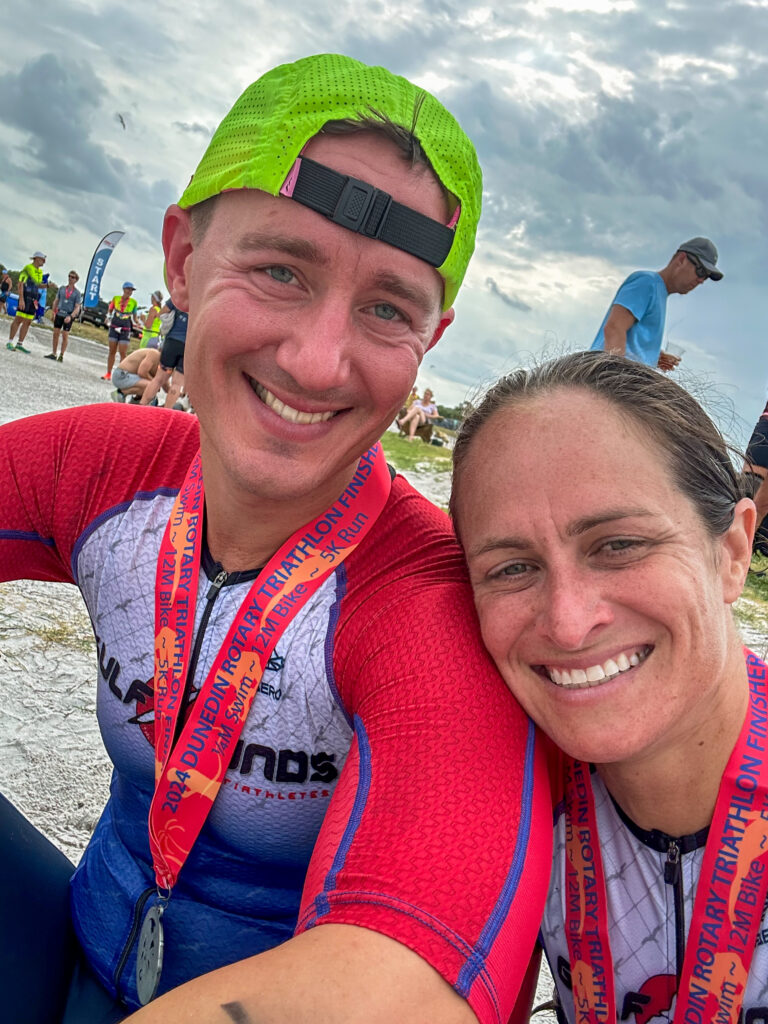
What if the swim gets cancelled?
After six years of competing in triathlon, I’ve never been at a race where the swim was cancelled.
Until this weekend.
We were at a sprint triathlon that suddenly turned into a duathlon thanks to extremely high winds and dangerous rip current.
Not a huge deal because it was just a local sprint. The stakes get higher as the race distance increases. The prospect of the swim getting cancelled at a 70.3 or Ironman is a much bigger deal. Given the time and commitment that goes into training for a long-distance triathlon, this concern is totally understandable and warranted.
But at the end of the day, your feelings won’t change the situation. What’s done is done. Dwelling on it won’t change the past, but if you can’t refocus and make a new plan, that will squash any chances of performing to your ability in the parts of the race that are left.
In triathlon, people talk about controlling the controllables. This means only focusing on the parts of the race that you can control, like executing your nutrition plan, pacing, and your mindset.
The weather is uncontrollable.
If the swim gets cancelled. It’s cancelled.
If it’s 80 degrees and humid. It’s 80 degrees and humid.
If it’s not wetsuit legal. Guess what… it’s not wetsuit legal!
When the unexpected happens in triathlon (and it definitely will) you have a decision to make. Are you going to have a pity party and whine about what might have been? Or are you going to make a new plan and move forward doing the best you can with the hand you’ve been dealt?
Here’s something I learned a long time ago. Wasting time and energy worrying about something you can’t control is useless. So what can you do?
Put on your big girl pants and RACE!
I wrote an article for 220 Triathlon a few years ago- What to Do When Weather Changes Your Race. I interviewed an athlete who was at 70.3 Gulf Coast in 2022 when rough surf cancelled the swim.
Now, there are some logistical things to consider when this happens. For example, without a 1.2- mile swim to provide a warm-up for the 56-mile bike, she went for a run so she wasn’t starting the bike cold. She also modified her pacing and nutrition plan to account for the change.
But, above all else, she let go of what might have been and made a new plan that would move her forward.
“When the swim is cancelled, there’s really no time to dwell on it. It’s go time, and you need to get focused in the moment.”- Gineth Mendez-Yibirin
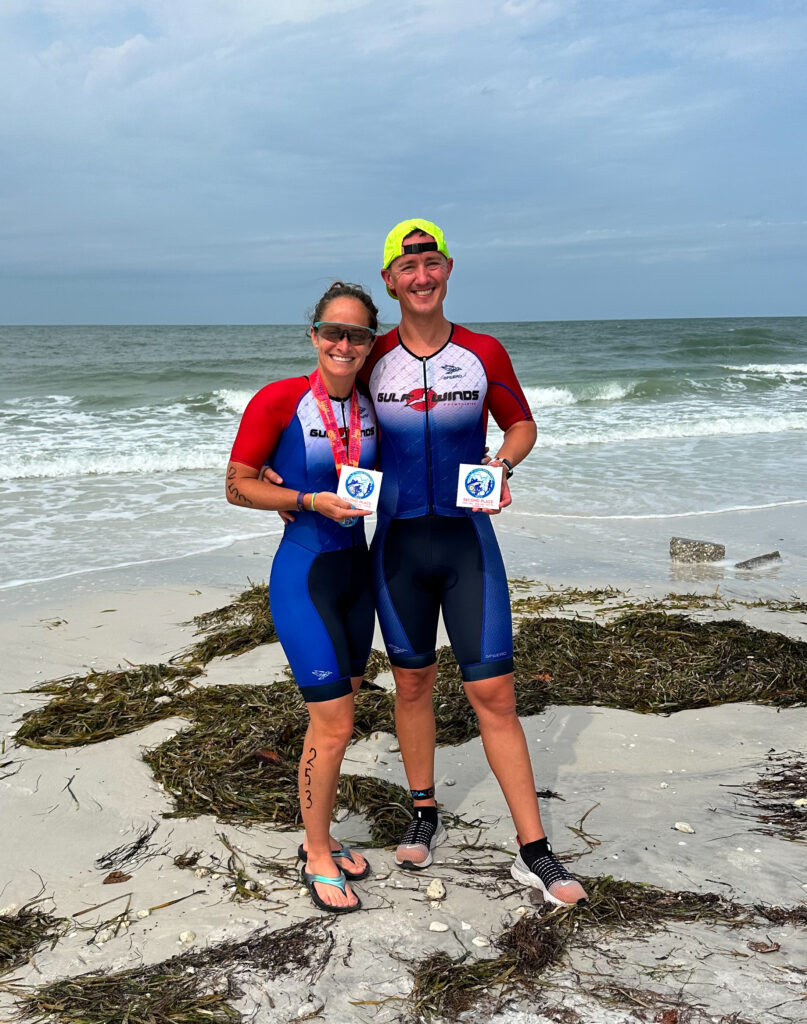
So how did our race go? Well, after the swim was cancelled 20 minutes before the start, I had a brief @$&% session. Then, I put on my running shoes, race belt, and did a warm-up run for our surprise duathlon.
We didn’t have to swim in that weather, but we did have to bike and run in it! Did you know that wind can come from every direction at once? And it can be 80 degrees and humid at the same time?
I did not.
25 mph headed out on the bike
14.2 mph headed back on the bike
The worst headwind I’ve ever ridden in.
But, it was a short race and we made it through. Despite it being magnificently brutal, Matt and I both came away placing 2nd in our age group. Top 10 overall for him and top 10 female for me.
Was it what we had planned for the day? Absolutely not. But in triathlon you have to expect the unexpected, and each time you race you will learn something about yourself along the way.
When something happens that affects my race, here’s what I do.
- Assess and then accept the situation. (It’s ok to have a 2-minute pity party)
- Refocus on what I need to do now. This might mean a short warm up or changing my nutrition or pacing plan.
- Move forward– Shift gears and get into race mode. What’s happened is in the past. Now, I shift focus to what I need to do to have the best race possible.
